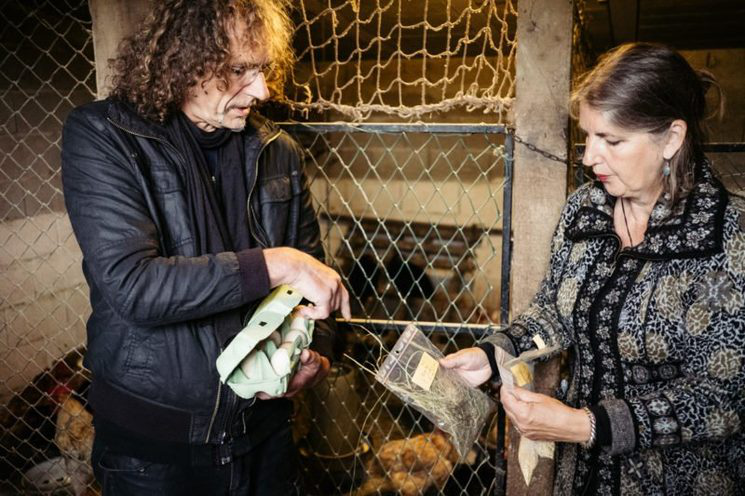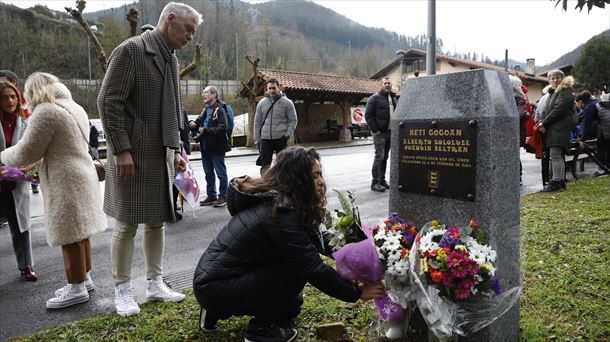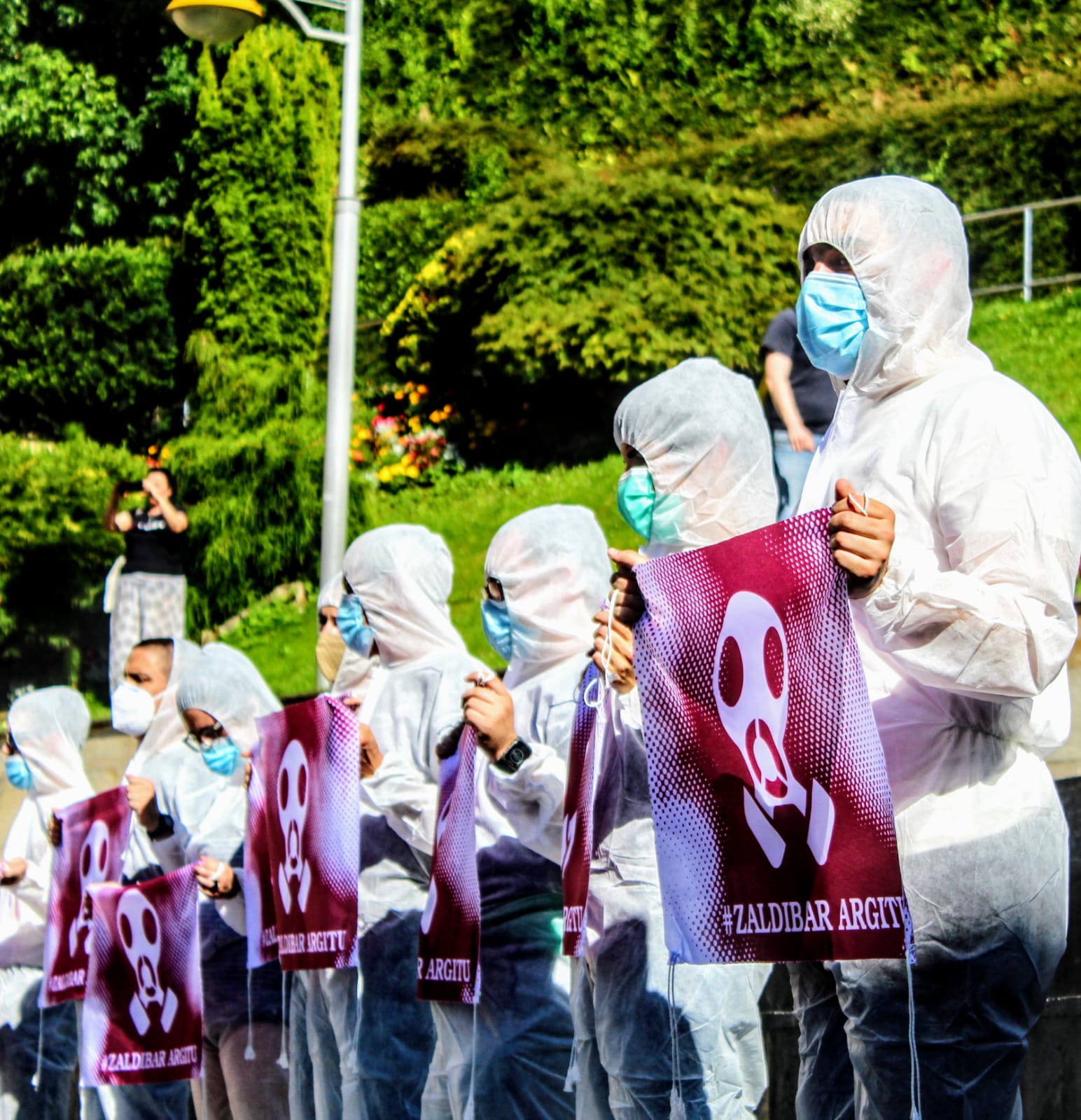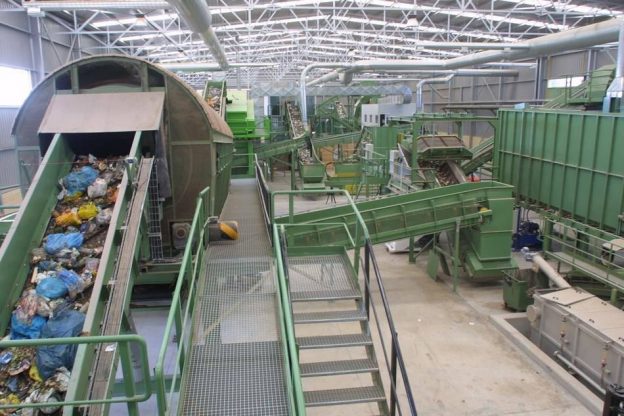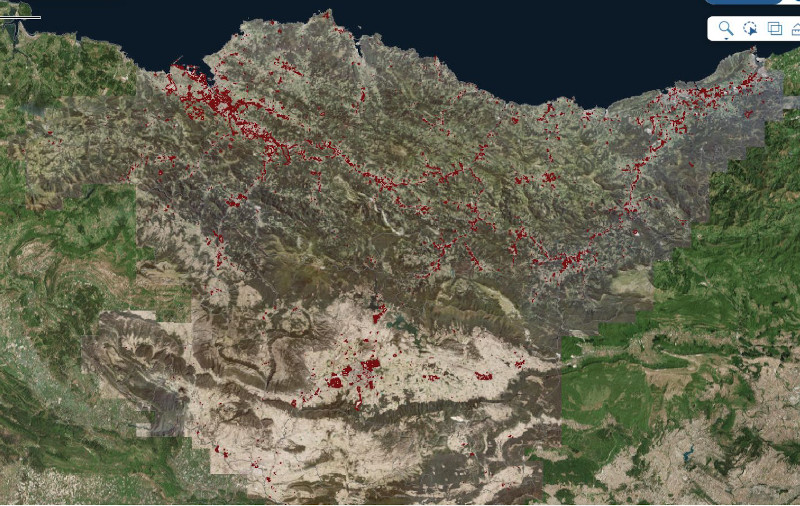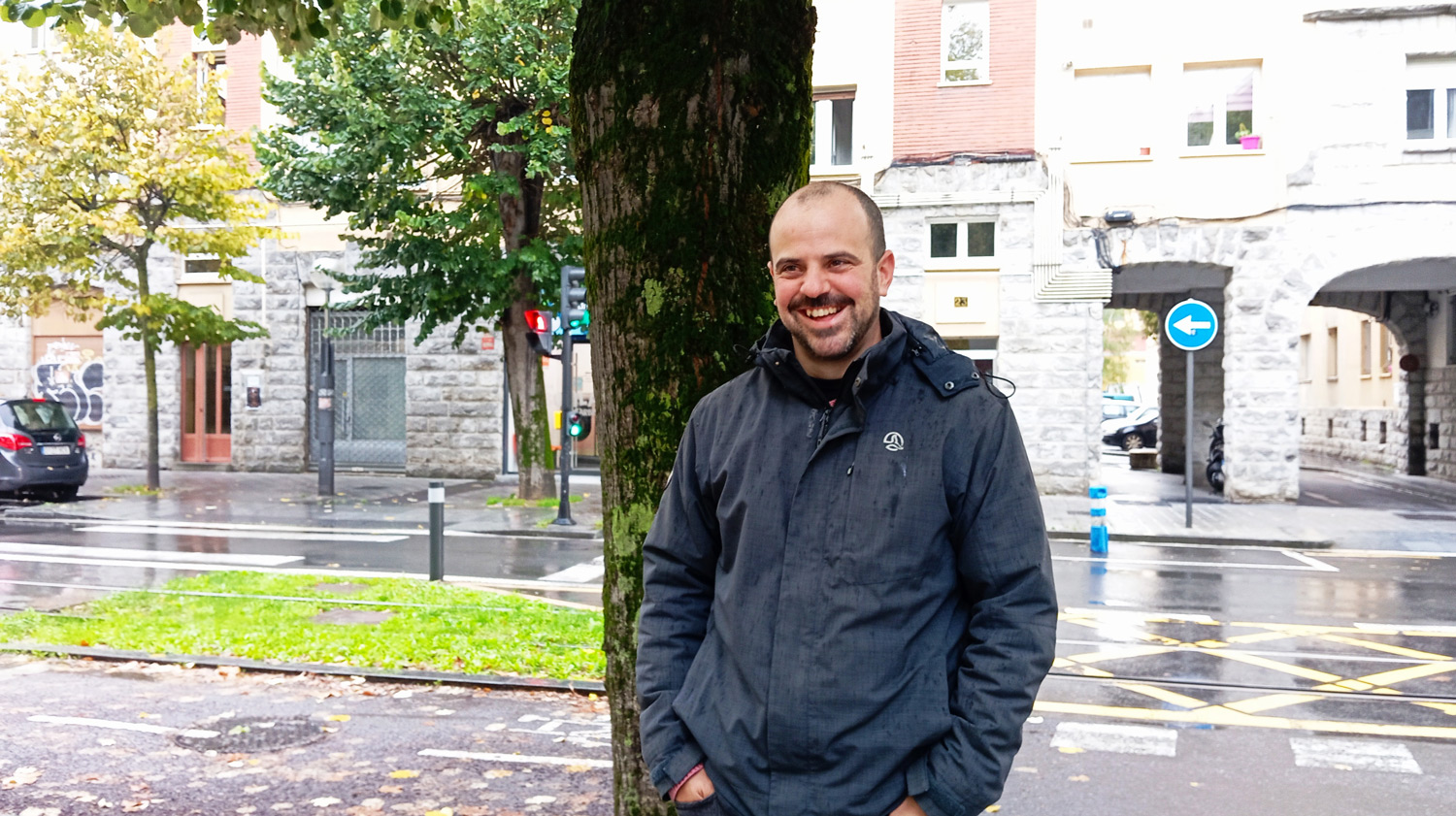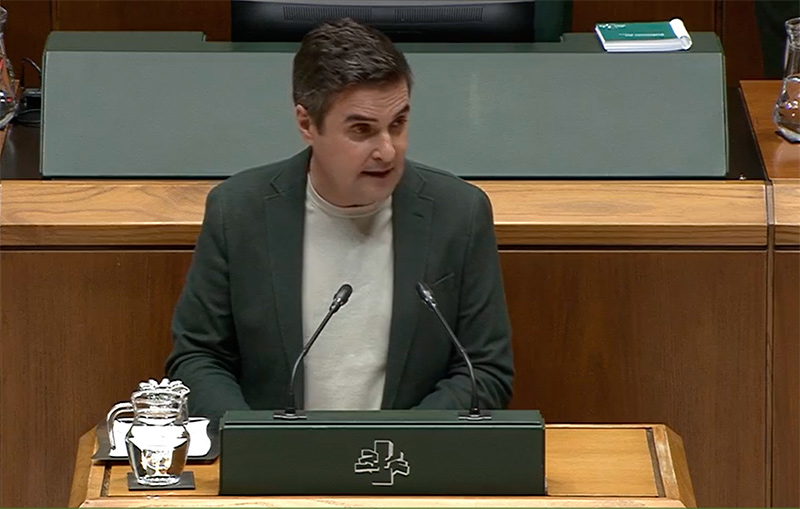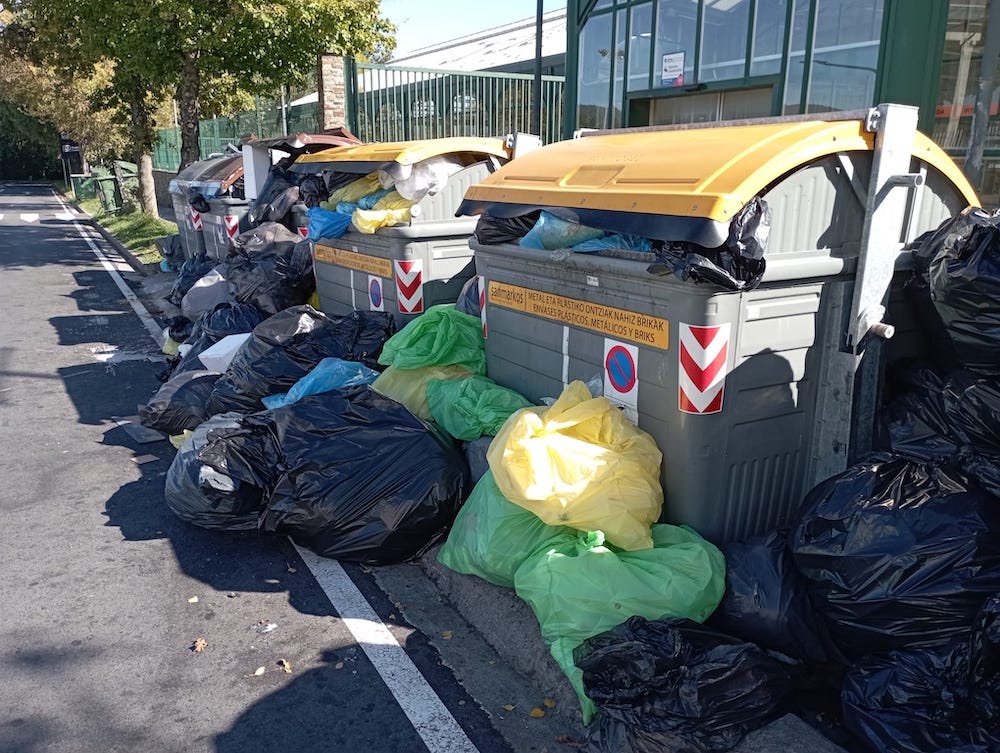They will pay more... those who recycle more
- The contract that the Gipuzkoa authorities have offered to private companies for the construction and operation of the Zubieta incinerator condemns this territory to suffer the damage from incineration at least until 2051 and to destroy all the progress achieved in the last eight years. It punishes municipalities that decrease, compost and recycle to reward the most polluting.
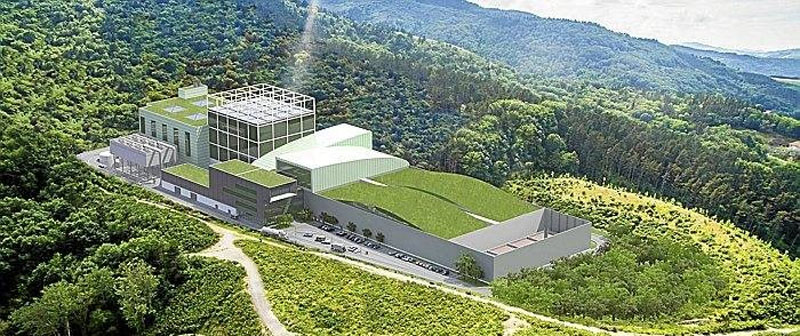
On 27 December the Waste Management Consortium of Gipuzkoa, GHK, gave the green light and the Diputación announced that over the next 35 years it will manage the waste from the territory the business group formed by the cooperatives Meridiam Investsments, Urbaser, Altuna and Uria, Murias, Moyua and LKS.
The proposal chosen by GHK specifies the conditions under which Urbaser and his team will take the assignment. The period for the construction and commissioning of the incinerator shall be 30 months and waste management shall take place in 32 years and 5 months. In these lines we will try to explain the economic costs of this contract for each municipality, always clarifying in advance that this is the first phase of the complete project.
During the term of the contract, Urbaser and others shall deliver to the GHK the invoice divided into two lots, so that the GHK may collect it from the municipalities through the local authorities. On the one hand, and as previously announced, Gipuzkoa will pay a total of EUR 21,672,069 per year for the right to service (Payment by Availability, Spanish acronym PPD), i.e. EUR 702,536,237 in 32 years and 5 months.
The second part of the invoice shall include the payment of the tonnes of waste that the companies will receive for their management: EUR 3.80 per tonne for Biological Mechanical Treatment BMT and EUR 11.80 per incineration.
How much does this second tranche of the invoice amount to annually? Taking as a reference that in 2015 Gipuzkoa generated 149,000 tons of waste, if they are kept constant from now on – Environment Deputy José Ignacio Asensio has just stated that Gipuzkoa will generate enough trash to feed the incinerator without the need to bring it from abroad… – EUR 2,309,580 per year, EUR 74,868,885 throughout the period will be paid. Added to this second invoice to the right to receive the said PPD or service, the payment of EUR 777.5 million for the treatment of rejections until 2051, plus the annual price update to be set.
Right to smoke, obligation
As can be seen from the official documents, the Gipuzkoan company will pay the main part of the waste incineration bill because it is a partner of the incinerator called the Zubieta Environmental Complex, i.e.: 90% of members in quotas and only 10% in terms of garbage generated. Here is another of the main elements of the debate that has not yet been sufficiently opened in Gipuzkoa. In addition to the concerns generated by incineration in health, employment, the environment or the transition to the Circular Economy, its funding will be carried out in a totally unfair manner, penalising those who are doing it best and rewarding those who are doing wrong.
Since it has been decided that all the inhabitants of Gipuzkoa will pay almost equally the costs of the incinerator, the peoples that least reject will pay each tonne in exchange for gold. How much? The distribution of incineration costs by municipalities has been calculated on the basis of the same criteria as the contract concluded by the GHK with Urbaser and others for relations with the municipalities and municipalities of the GHK. The complete simulation table we have prepared will be available on the ARGIA website. To complete the graph accompanying this chronicle, we have highlighted some sections of the complete simulation: the amount of rejection per inhabitant/year generated by each city council, the amount of invoice that will reach the entire year and the amount of euros that can be obtained from the incineration of each ton of rejection generated.

In the light of the Reader box, you will soon see who are the sanctioned and who are the awarded. The biggest sanctions are for champions in selective collection and recycling: The incineration of one tonne of rejection to Ormaiztegi leaves at EUR 1,214, to Orendain at EUR 1,478… On the contrary, to Getaria, the one that most rejects generates per inhabitant in Gipuzkoa, EUR 87, to Deba, more than 300 kilos per person, EUR 114, to Hondarribia, EUR 116, to Irun…
Those who have succeeded in further reducing the rejection with the Door to Door shall pay a cut every tonne delivered to the incinerator: Antzuola 609, 433 de Oñati, 521 de Usurbil, 582 de Zaldibia, 497 de Hernani… On the contrary, the winners are those who have greatly improved the revenue in eight years since the beginning of Usurbil: San Sebastian costs 123 euros per tonne, Eibar 161, Errenteria 157, Andoain 146, Lasarte-Oria 145…
The point is that this GHK logic of organising waste tariffs runs counter to all the criteria that the European Union sets and suggests for the circular economy. Also against the logic of good management: the reduction of waste requires more expenditure on good selective collection, with the consequent saving in treatment.
From the 2015 slug, back
But this is not new in Gipuzkoa. When in 2015 the PNV and the PSE adopted the Provincial Council of Gipuzkoa, in the previous legislature the tariff scheme established by Bildu was superseded. In the first place, the remainder increased by 11% in municipalities, but much more organic collected separately, which increased by 44-88%. In addition, new criteria were established for setting the price to organic.
Based on what does each city council pay today? In the rates approved in March 2016, the same price was applied to organic as the rest (it was half in the previous legislature), according to a subsequent bonus and the amount of organic that your community delivers: Bonuses range from 15% to 35%. The fee has nothing to do with the costs of the GHK composting plants or with those charged by private companies for treating organic in the market.
To understand this civics salsa, serve the municipalities that participate in the Puerta a Puerta de San Marcos. Rejection will be charged in 2017 for EUR 173.12 per tonne and organic 138.49 (until 2015 they were charged EUR 70.88!) for the reason and because it has been charged with the organic tariff which covers the entire community of San Marcos. The municipalities operating at the Puerta a Puerta de San Marcos are much more organic, but they fall into the average of Donostia, Lasarte-Oria, Errenteria and others, thus losing better bonuses to their good revenue.
But there's something worse. When last summer several municipalities in Gipuzkoa devised the hypothesis that they would leave the communities to manage well-differentiated waste on their own, they found suppliers on the market that could receive them at prices far higher than those of the GHK, both organic (75 euros as cheap) and final rejection (110 euros). Imagine the ruin that it means for a municipality of this kind to lose every year – in addition to the amount it will take for the incinerator – for having to deliver the waste at a much higher price than in the market … because in theory the community, voluntary partner, does not allow anyone else to be sold.
Prisoner of the incinerator until 2051
It is intended to build an incinerator of 200,000 tons in Gipuzkoa, where the dissemination of the models of the municipalities that carry out an ordered selective collection would generate only 50,000 tons of rejection. Since eight years ago it began at the Usurbil Door to Door it has been shown that this can be achieved in a few months. On the contrary, PNV and PSE have assured private contractors that all municipalities in Gipuzkoa are captive until the age of 35 of their municipalities and the incinerator, forcing them to pay the rate of the right to incineration.
The tariffs set by the incinerator’s contract encourage municipalities not to reduce the amount of mixed waste, but to generate more or less, as selective collection and reduction efforts are not rewarded, but are penalised. And yet, if the municipalities do not generate enough trash to burn, as they will pay almost the same nine out of ten of the costs of the incinerator, Urbaser and other contractors will offer the Zubieta furnaces to the producers of waste from outside Gipuzkoa. With Zabor's Import-export business there is already experience in many places in Europe.
The City Hall of Donostia-San Sebastián announced at last Thursday’s plenary session that it will increase the waste rate by 26.5% from January 2025, claiming that Waste Law 7/2022 obliges this. Eguzki, for its part, has denounced that the law only applies in terms of costs,... [+]
August is the holiday month for many people, including those who rule. And yet it is common to take advantage of the month of August to deal with some issues without much noise, albeit of great importance.
This is what is happening with the project to centralize sludge... [+]











